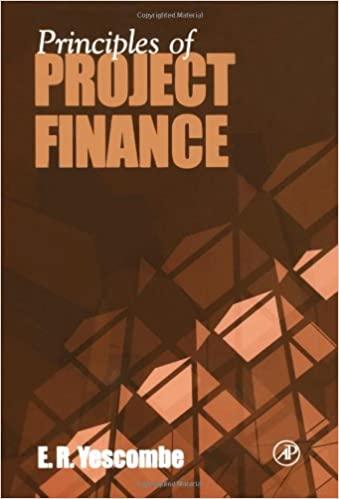Question
Consider the two (excess return) index-model regression results for stocks A and B. The risk-free rate over the period was 6%, and the markets average
- Consider the two (excess return) index-model regression results for stocks A and B. The risk-free
rate over the period was 6%, and the markets average return was 14%. Performance is measured
using an index model regression on excess returns.
|
| Stock A
| Stock B |
| Index model regression estimates | 1% + 1.2(rM rf ) | 2% + 0.8(rM rf ) |
| R-square
| 0.576 | 0.436 |
| Residual standard deviation, (e) | 10.3% | 19.1%
|
| Standard deviation of excess returns | 21.6% | 24.9%
|
a. Calculate the following statistics for each stock:
i. Alpha
ii. Information ratio
iii. Sharpe ratio
iv. Treynor measure
b. Which stock is the best choice under the following circumstances?
i. This is the only risky asset to be held by the investor.
ii. This stock will be mixed with the rest of the investors portfolio, currently composed solely
of holdings in the market-index fund.
iii. This is one of many stocks that the investor is analyzing to form an actively managed stock
portfolio.
Step by Step Solution
There are 3 Steps involved in it
Step: 1

Get Instant Access to Expert-Tailored Solutions
See step-by-step solutions with expert insights and AI powered tools for academic success
Step: 2

Step: 3

Ace Your Homework with AI
Get the answers you need in no time with our AI-driven, step-by-step assistance
Get Started


